Religions of the Body, Mind, and Spirit
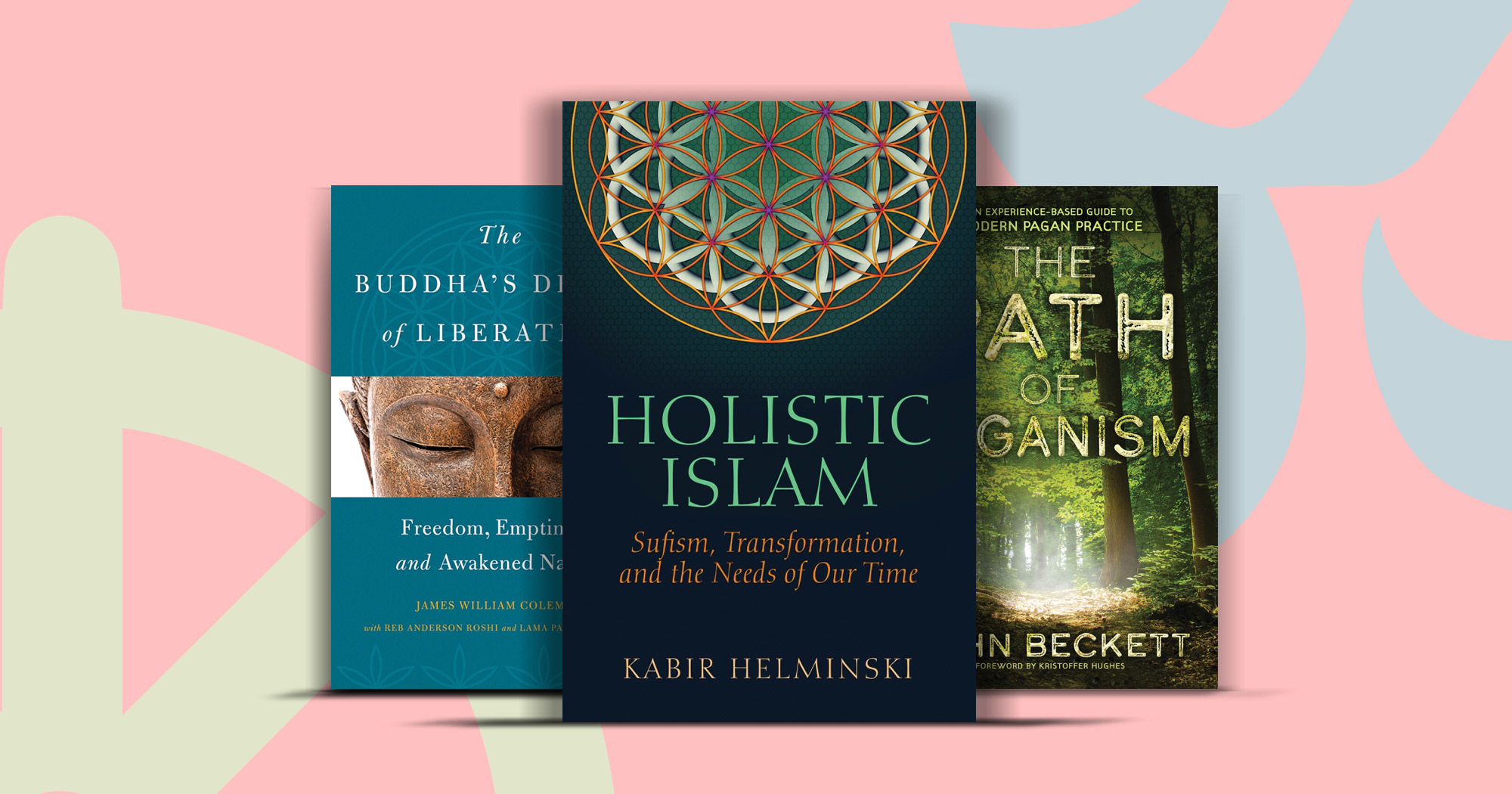
Religion is first and foremost a spiritual matter; dealing with the soul. But it extends to earthly bodies and thoughts. These books reviewed in our Religion Spotlight discuss religion and its effects on our beings.
Holistic Islam
Sufism, Transformation, and the Needs of Our Time
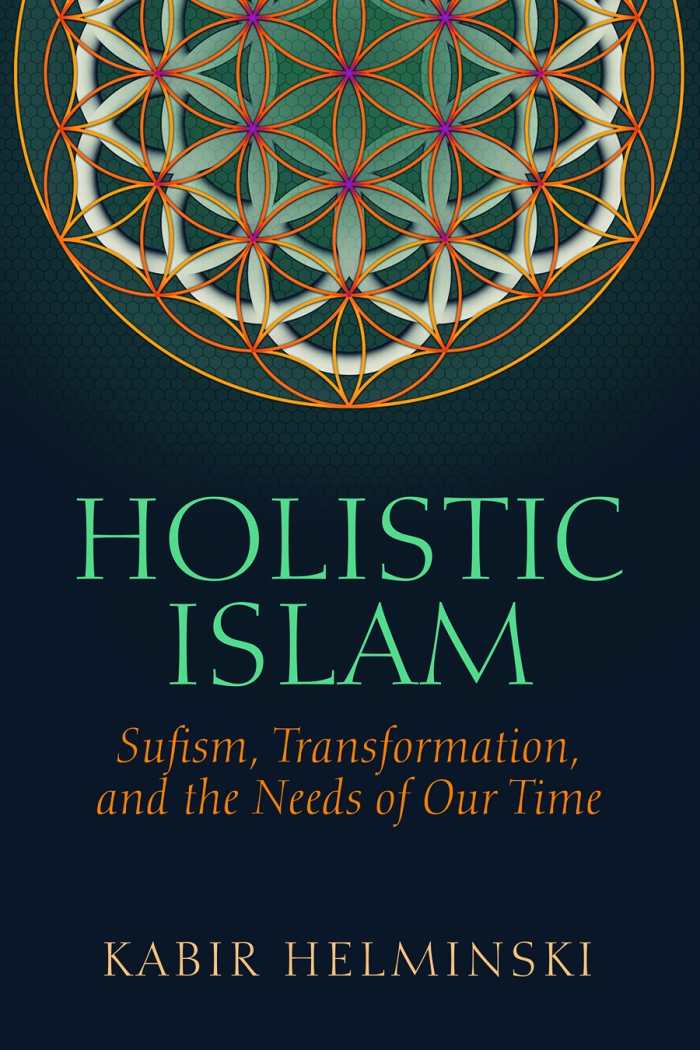
Kabir Helminski
White Cloud Press
Softcover $14.95 (168pp)
978-1-940468-55-6
Transcending politicized arguments, this book emphasizes holistic, dynamic spirituality over “correct” belief and practice.
In Holistic Islam: Sufism, Transformation, and the Needs of Our Time, Kabir Helminski debunks myths about Islam. Drawing on the Qur’an and his own Sufi tradition, he points to love and the search for divine revelation as twin antidotes to religion’s dangerous slide towards legalism.
An adult convert from Catholicism, Helminski is now a Mevlevi sheikh, part of the same order as the Sufi mystic Rumi. He believes that Sufism presents a middle way between secular, materialist Western culture on the one hand and “rigid, reactionary, and harsh Islam” on the other. Instead of focusing on individual adherence to rules, he argues, Islam needs to concern itself with developing mature human beings who have awoken to the truth and respond in love to the world’s needs.
The book highlights a number of aspects of Islam that are often overlooked, such as environmental consciousness and a radical message of equality before God—not just parity between different races and classes, but also between men and women. Several chapters address these controversial issues through responses to frequently asked questions about the role of women and the Qur’an’s teachings on sex.
The notion of Shariah law is not explicitly stated in the Qur’an, the author notes, but is a human formulation, and therefore subject to interpretation. Rather than looking to scripture for codified doctrine, then, he turns to it for spiritual guidance. For instance, he cites verses that describe Abraham’s relationship with God as an intersection of human surrender and divine sustaining. These excerpts and any Arabic terms are set apart in italic type. Quoting from Rumi, along with other poets and scholars, creates a tapestry of voices of wisdom and introduces Sufism’s potent metaphors of human maturation—“ripe” and “cooked” as opposed to raw.
Helminski balances positive statements about Islam with explanations of what it is not. This is especially helpful when discussing a religion so plagued by misconceptions—“Westerners fear Islam because they confuse it with the political reaction known as Islamic fundamentalism,” he asserts. But Islam is not the enemy of Christianity, a backward culture, or a “membership club,” but rather the “state of being of one who has surrendered to Truth.”
Transcending politicized arguments, this book emphasizes holistic, dynamic spirituality over “correct” belief and practice. Spiritual hunger is universal, and Sufism offers rich, satisfying fare.
REBECCA FOSTER (May 27, 2017)
Mindful Emotion
A Short Course in Kindness
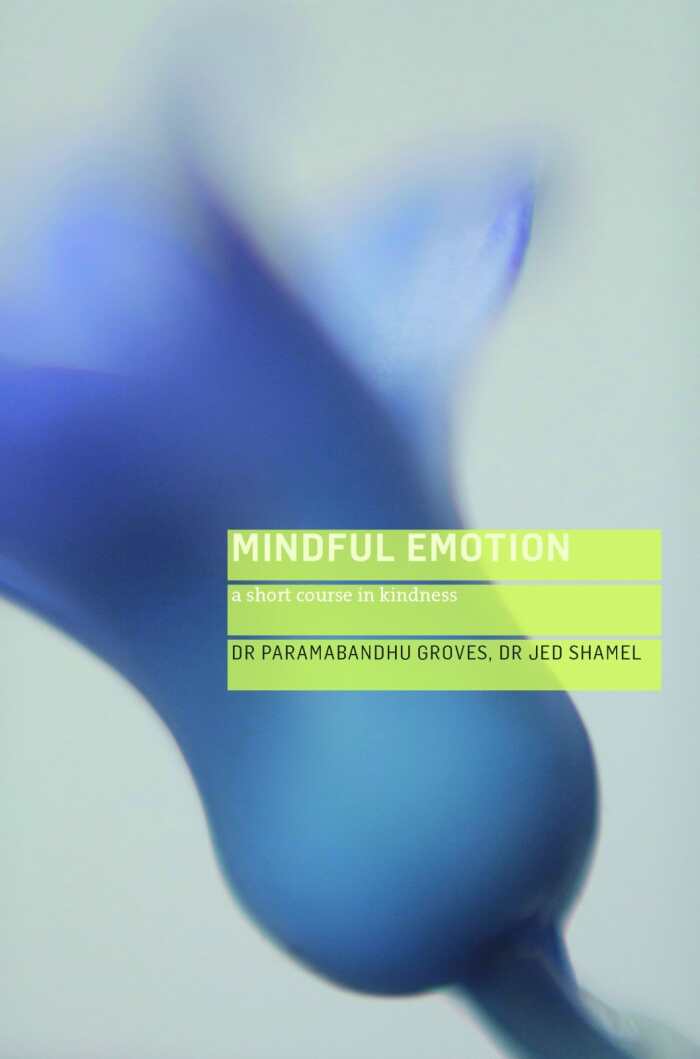
Paramabandhu Groves
Jed Shamel
Windhorse Publications
Softcover $18.95 (264pp)
978-1-909314-70-2
Buy: Local Bookstore (Bookshop)
Those who feel called to make a difference in the world will find the practice of kindness to be a powerful first step.
To respond with kindness in all situations can seem like an unachievable goal, but, in Mindful Emotion: A Short Course in Kindness, Dr. Paramabandhu Groves and Dr. Jed Shamel have brought science, ancient wisdom, and psychological insight together in a practical and wise guide that illuminates a clear path to making kindness a bigger part of life, and something that can be relied upon when things get tough.
Rooted in the Buddhist tradition and inspired by contemporary compassion and mindfulness approaches, Mindful Emotion is the workbook for their course, “Kindness Behaviour Training,” but it stands alone as an accessible, practical, and inspiring guide that demystifies the process of becoming kinder and more compassionate with ourselves, those around us, and even those we may not happen to like.
Using the familiar analogy of the garden, the book shows how simple kindness can have far-reaching, powerful, and often unseen consequences, and how, as a practice, it has the advantage of being something that we can start right now, wherever we are.
Key to developing and radiating kindness is meditation, both formal and informal. “Meditation and action mutually reinforce each other,” write the authors. “As we practice, we see more and more subtle and skillful ways of acting with kindness. We learn to combat the unhelpful ingrained habits of our heart and to transform them into ways of being that benefit both us and others and harvest rich rewards.”
With guided meditations both in the text and in the accompanying audio, with practical exercises and lots of encouragement to take a patient, compassionate, and gently questioning attitude to the self, Mindful Emotion is a real gem.
Those who are looking to deepen their meditation practice and bring its fruits out into the world will find the practice of kindness uncomplicated, portable, and transformational. Those who feel called to make a difference in the world will find the practice of kindness to be a powerful first step—it may even be the only one that’s really needed.
KRISTINE MORRIS (May 27, 2017)
The Buddha’s Dream of Liberation
Freedom, Emptiness, and Awakened Nature
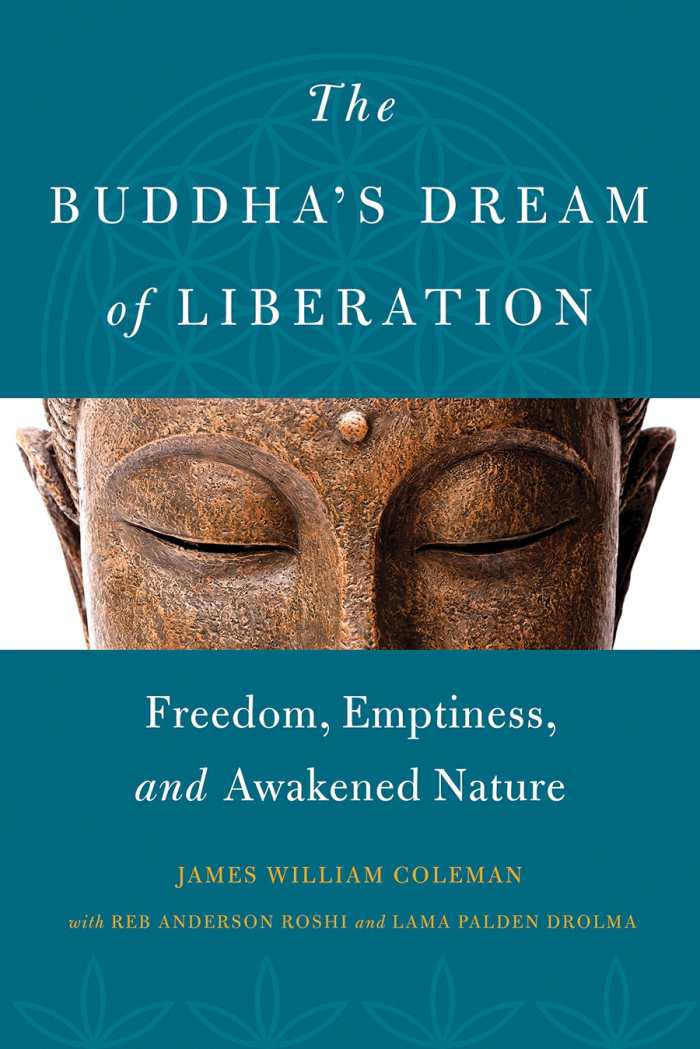
James William Coleman
Reb Anderson, contributor
Lama Palden, contributor
Wisdom Publications
Softcover $16.95 (176pp)
978-1-61429-358-3
Buy: Local Bookstore (Bookshop)
This book is an effective introduction to many aspects of Buddhist thought and practice.
In The Buddha’s Dream of Liberation: Freedom, Emptiness, and Awakened Nature, James William Coleman provides an overview of Buddhist sutras through an explanation of the three turnings of the wheel of dharma, and provides examples and context for what these ideas mean in the modern day. This slim volume is a useful primer for readers looking for an introduction to Buddhist thought, as Coleman explains differences between some traditions and writes in language accessible to nonpractitioners.
Coleman does a nice job explaining common Buddhist concepts such as the Four Noble Truths, the Eightfold Path, and the Middle Way. He explains how these concepts differ from more doctrinaire Western concepts such as the Ten Commandments, and he breaks down some of the debates Buddhist scholars have had over hundreds of years about what concepts like “right speech” and “right action” mean in practice. He uses modern examples as well, so that those interested in Buddhism can think about the centuries-old First Turning in terms of their daily lives.
After going through all of these First Turning of the Wheel concepts, Coleman proceeds to explain the Second Turning and its radical departure from the first teachings—a change so dramatic that some of those who first heard it allegedly died of shock. Coleman explains how this turning’s focus on emptiness influenced future Buddhist thought and changed meditation practices along with a shifting worldview. The Third Turning’s focus on the mind and its notion that reality is unknowable and ungraspable receives an explanation as well. All these concepts are methodically introduced; the book briefly discusses the history of when they entered practice, how they diverge from previous teachings, and how they help inform Buddhists today.
Along with Coleman’s overview, The Buddha’s Dream of Liberation also includes a chapter by Lama Palden Drolma about the Vajrayana practice of meditating on the goddess Tara, another by Reb Anderson Roshi about Zen practices on concentration and clarity, and several pages of notes for further reading. All these additional resources help the book serve as an effective introduction to many aspects of Buddhist thought and practice.
JEFF FLEISCHER (May 27, 2017)
The Path of Paganism
An Experience-Based Guide to Modern Pagan Practice
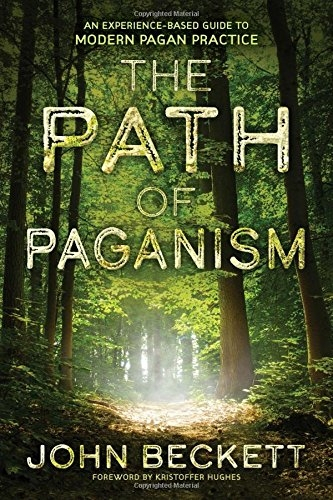
John Beckett
Llewellyn Publications
Softcover $19.99 (336pp)
978-0-7387-5205-1
Buy: Local Bookstore (Bookshop)
Beckett affirms that pagan religions honor nature, the gods, our ancestors, and our own unique place in the world.
John Beckett’s The Path of Paganism is not just a book about Paganism, it’s a book that tells us how to be a pagan—not an easy thing these days, when the whispers of the natural world and the call that’s heard with the heart are submerged in the fast-flowing current of the quest for material success. In such a world, Beckett shows the wisdom of pagan practice, and why it can inspire us to dive in deeply and live wholeheartedly, with integrity, and with joy.
Beckett, a Druid in the Order of Bards, Ovates, and Druids, serves as the coordinating officer of the Denton Covenant of Unitarian Universalist Pagans. “Good religion is dangerous religion—it challenges us to confront our preconceived notions and live up to our values,” Becket writes, adding that, in these times, this call “should come with a sense of urgency and priority.” Paganism is a way of seeing the world and our place in it; but it’s not an easy path, he warns. It demands challenging the assumptions of mainstream society and becoming devoted to truth, because only truth can provide a solid base from which to embark on an exploration of the universe, the self, the gods, and the community of living beings.
Beckett shows that while knowledge is important, paganism isn’t just about what you know, it’s also about “the sun on your face, the wind on your skin, the dirt on your fingers, and the rain on your shoulders. It’s about that special feeling you get when you stand under the full moon. It’s about lighting a candle, pouring an offering, and saying a prayer.”
The best religions will teach us how to embody virtues and values that will be there for us, in us, when we are faced with difficult situations. Beckett affirms that pagan religions do this from a perspective that honors nature, the gods, our ancestors, and our own unique place in the world. Above all, he says, paganism is not about doctrine, but about experience; not about rules, but about relationships; not about intellect, but about the soul.
KRISTINE MORRIS (May 27, 2017)
White Hot Truth
Clarity for Keeping It Real on Your Spiritual Path from One Seeker to Another

Danielle LaPorte
Virtuonica
Hardcover $25.00 (264pp)
978-0-9976514-0-9
In this of-the-moment spiritual guide, the lesson is this: stay true to yourself, and the answers will follow.
From its bright cover to the eighteen handwritten #Truthbombs in its pages, Danielle LaPorte’s new book, White Hot Truth, is a self-help book for a spiritually starved, social-media-saturated generation of seekers. LaPorte shares lessons she’s learned on discernment, spiritual confidence, and finding her own path.
Spirituality is an open field, and anyone looking for enlightenment will encounter mixed messages and conflicting guidance. LaPorte takes these issues on with grace and humor. Her willingness to describe her misadventures in spiritual seeking is heartening—especially in a genre where many authors portray themselves as gurus.
LaPorte samples a wide base of religious and spiritual practices, and is quick to say that although she’s tried pretty much everything—including hiding amethyst crystals in her bra and meditating through a coffee colonic—she’s still learning and adapting too. If anything, she says, the “spiritual overachiever” mind-set worked against her: “I had to see that somewhere between the yoga classes, support calls with a shaman, and guided visualizations, my spiritual path had become another to-do list.”
White Hot Truth is broken into chapters that each include a spiritual lesson, such as forgiveness, maintaining healthy boundaries, and humility. Although her spirituality is very of-the-moment—sprinkled with references to Tibetan monks, goddess power, and more yoga than a Gwyneth Paltrow lifestyle guide—LaPorte’s message is easy to access. Her mantras may be highly Instagrammable, but she lays out the hard truths too.
“Instead of medicating with Marlboros and martinis, we might be doing it with metaphysics and macrobiotics,” she says. “On the surface, positivity and wellness goalkeeping present so nicely that it can be hard to see when healthy actions are hooked to unhealthy ambitions.” LaPorte confidently asserts that healthy spirituality is available to anyone who’s brave enough to take a long look in the mirror.
Best of all, LaPorte’s voice comes through on every page. She’s self-aware and funny, quick to laugh at herself. “My New Year’s resolution a few years back was to be way mo’ bad,” she says. Planning to smoke more, drink more, and sleep around, she instead gets nasty on her inbox, deleting emails like a dominatrix. Sometimes, it’s the little things. The lesson? Stay true to yourself, and the answers will follow.
CLAIRE FOSTER (May 9, 2017)
Foreword Reviews
